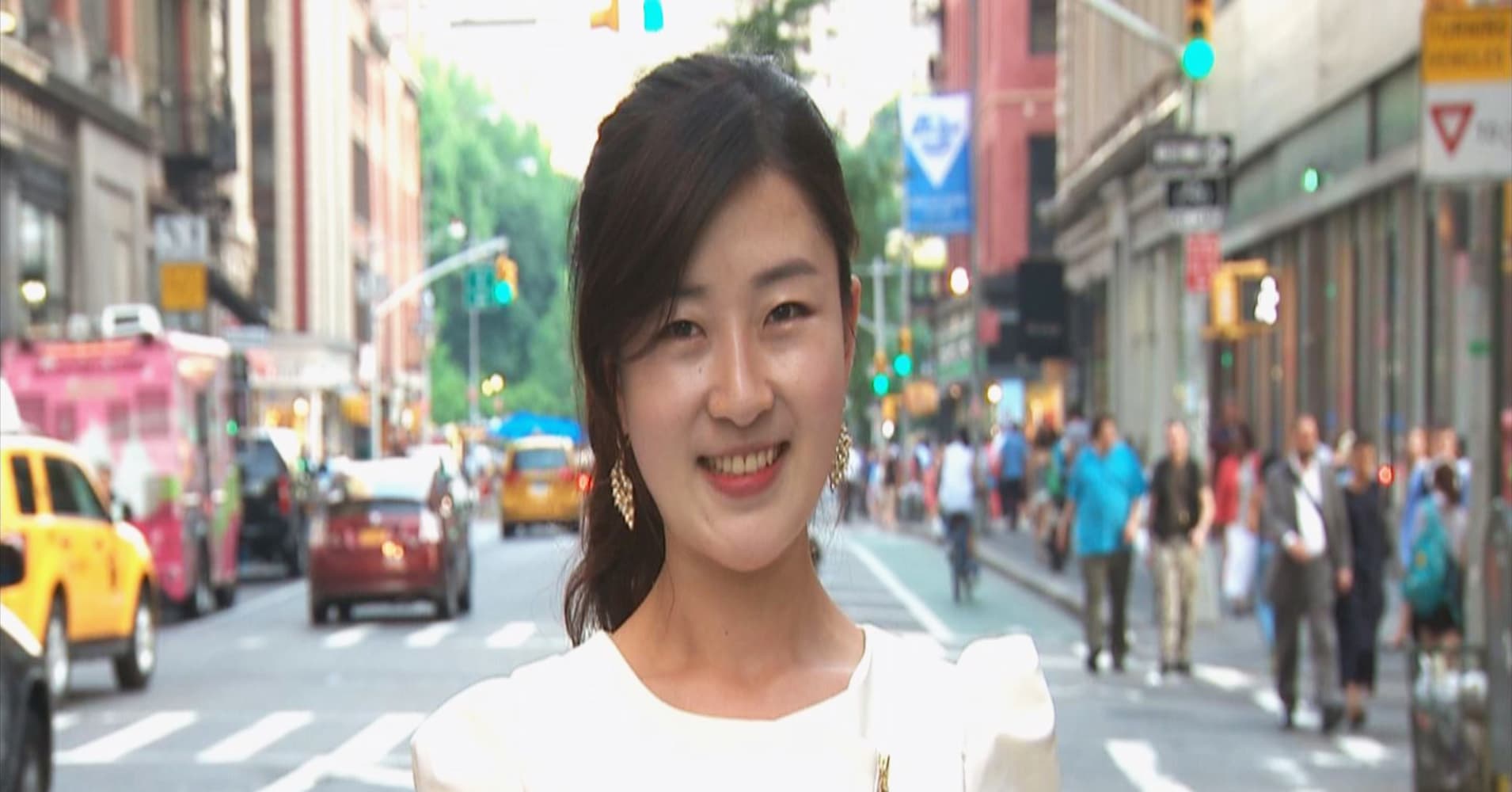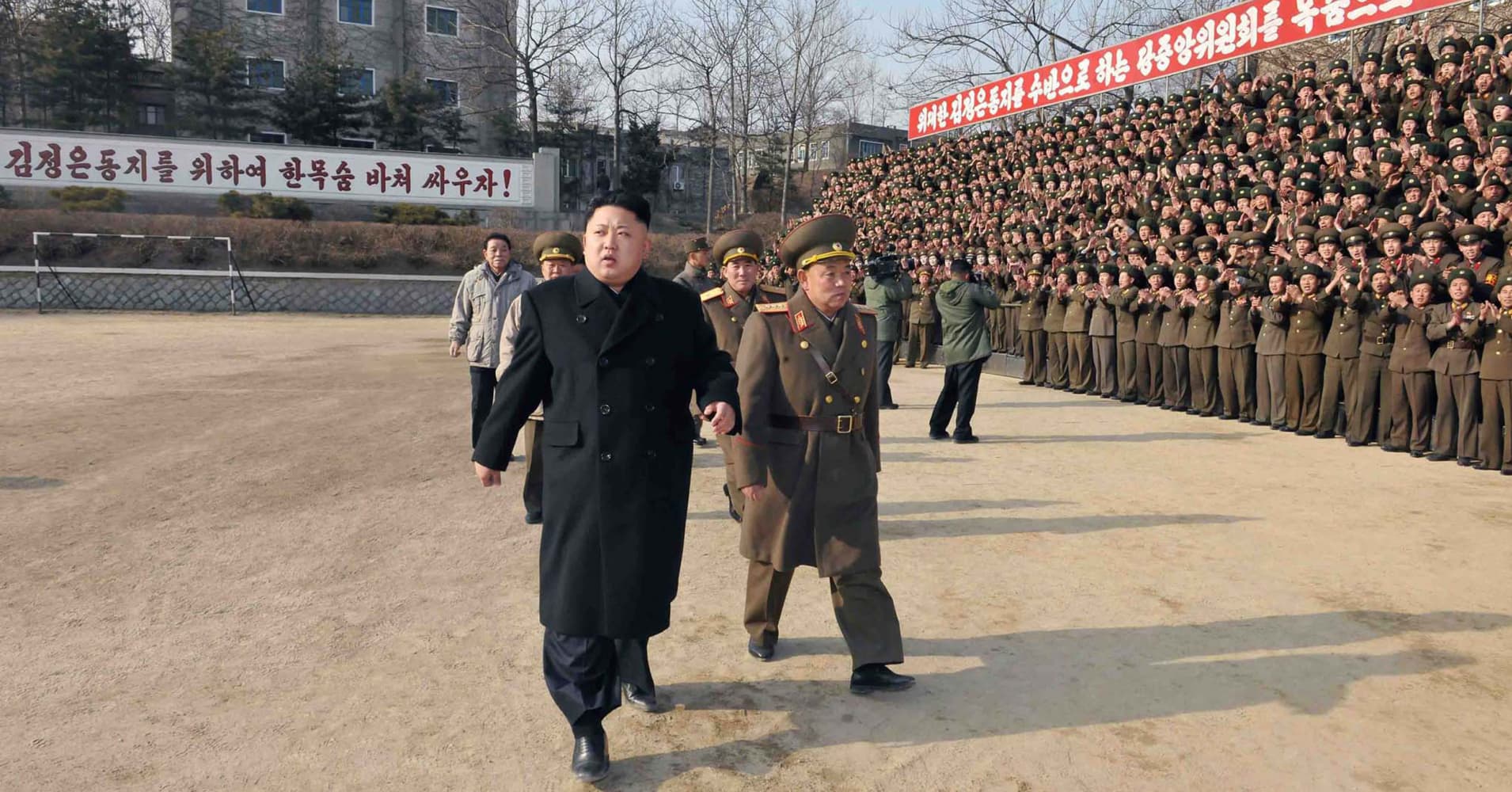Puzzling Events Afoot in North Korea?
"If you are an ordinary North Korean today, and if you don't make money through markets, you are likely to die of hunger."
"It's that simple."
Kim Nam-choi, 45, defector to South Korea
"Thanks to the market, few North Koreans these days flee for food, as refugees in the 1990s did."
"Instead, they now flee to South Korea to have a better life they learned through the markets."
Reverend Kim Seung-eun, South Korean pastor
"Our attitude toward the government was this: If you can't feed us, leave us alone so we can make a living through the market."
Kim Jin-hee, North Korea defector, South Korea
 |
Ng Han Guan | AP
North Korean children carry hay on a road near Mount Kuwol in South Hwanghae province, North Korea |
Government approved markets in North Korea since 2010 have risen to 440 in number and in most cities they are growing. Of the North Korean population of 24 million, an estimated 1.1-million people employ themselves as market entrepreneurs. People produce and sell shoes, clothing, sweets and breads out of their homes to sell at these markets.
Agricultural markets in rural towns are thriving. The markets host people who smuggle black-market items like Hollywood films, South Korean television dramas, smartphones operable close to the border with China.
Some form of private enterprise now engages at least 40 percent of the North Korean population, comparable to the marketplaces in Hungary and Poland once the Soviet bloc disintegrated, according to Lee Byung-ho of South Korea's intelligence service. Where once North Koreans worked for state enterprises exclusively, at farms and factories for subsistence salaries and ration coupons for food and necessities of life in state stores, that system is now disappearing.
 |
Source: CNBC
In 2010, Joo Yang defected from North Korea, where she learned about the outside world through radio reports.
|
Many North Koreans working for the state barely earn a dollar a month while economists estimate the cost of living in the country to be $60 monthly. Of the majority of consumer goods available in the North Korean marketplace, China is the origin, estimates Kim Young-hee of the Korea Development Bank in South Korea. It is North Korea's Dear Leader himself who has exhorted his countrymen to produce local goods.
Market demand is now being satisfied increasingly less by Chinese-produced consumer goods and more by shoes, liquor, cigarettes, socks, sweets, cooking oil, cosmetics and needles that North Koreans themselves are producing, edging out the Chinese-origined versions. Where once state propaganda spoke of Coca-Cola as "cesspool water of capitalism", it is now sold at markets in the North.
Once collective farms meet the state quota, the excess can be sold as surplus.
But even while the country's economic and marketplace fortunes are beginning to thrive, its political stability is in question. The more marketing independence people are given, the less beholden they feel to the state to provide for them, which it rarely did adequately to begin with. All of these changes have gone hand in hand with Dear Leader and his military establishment cranking up their nuclear and missile development plans.
And since the April 6 meeting in Washington between Chinese leader Xi Jinping and U.S. President Donald Trump, things have been moving sideways for Kim Jong-un, whose major support had been courtesy of the former Chinese leader Jiang Zemin, now in conflict with the current leader. Post the meeting between Xi and Trump, the Carl Vinson aircraft carrier strike group was dispatched to the region and China sent 150,000 troops to the border with North Korea.
 |
Source: NASA
Flying over East Asia in January 2014,
astronauts took this night image of the Korean peninsula. Dark North
Korea is difficult to detect, between China and South Korea.
|
Not, it appears, in preparation for a potential outbreak of war. Rather, in anticipation of a regime collapse. With China concerned about a possible unmanageable and destabilizing influx of North Koreans flooding across its border. To which end and to prevent asylum seekers or defectors from swamping the border, official China appears to be emergency-hiring positions linked to security on its border with North Korea.
According to the Hong Kong-based news outlet The Oriental Daily, a letter issued by Chinese authorities apprise of positions to be filled in border security, public security, trade, customs and quarantine. With an especial emphasis on recruiting Korean-Chinese interpreters for departments responsible for those areas, to be deployed close to the North Korean Border. All of which details are certainly open to interpretation.
 |
KNS | AFP | Getty Images
Kim Jong-Un inspects the command of Korean People's Army Unit 534 |
Labels: Ballistic Missiles, China, Conflict, Marketing, North Korea, Nuclear Arms, South Korea, United States

<< Home